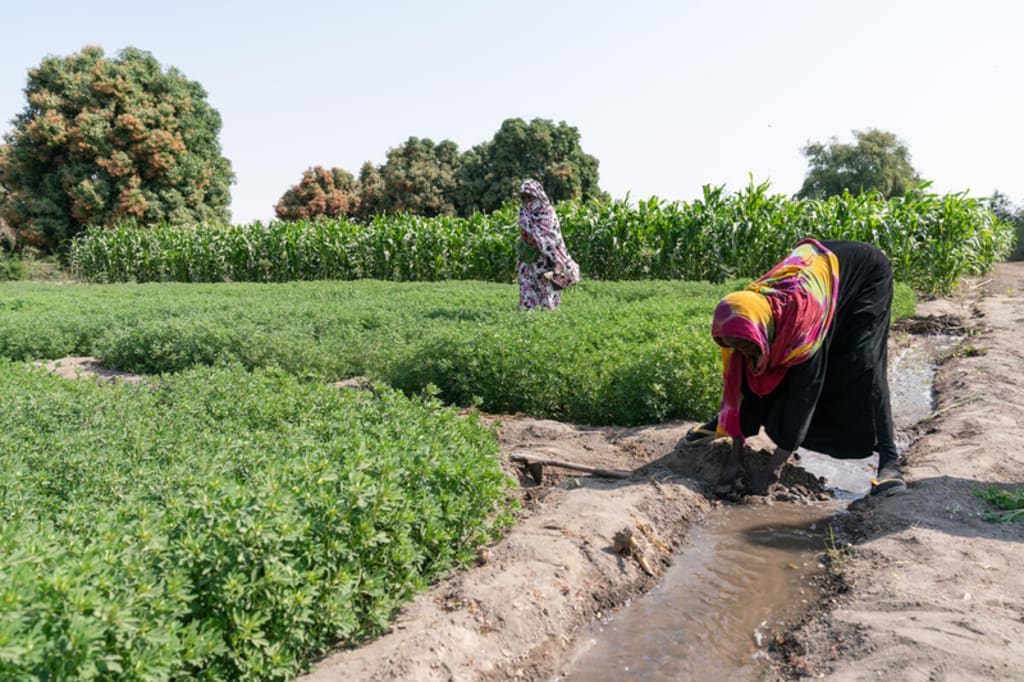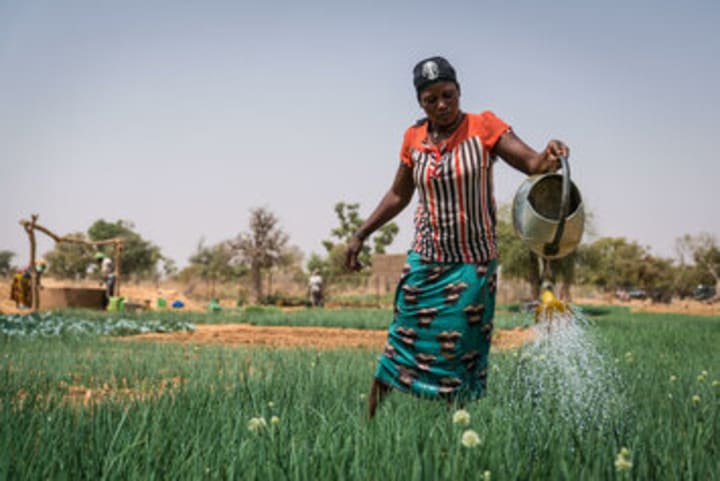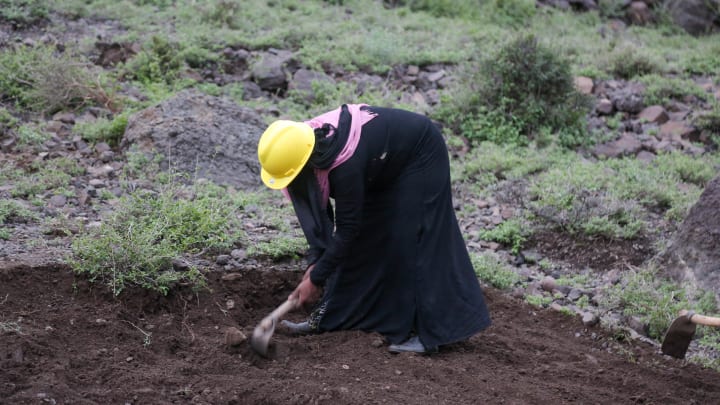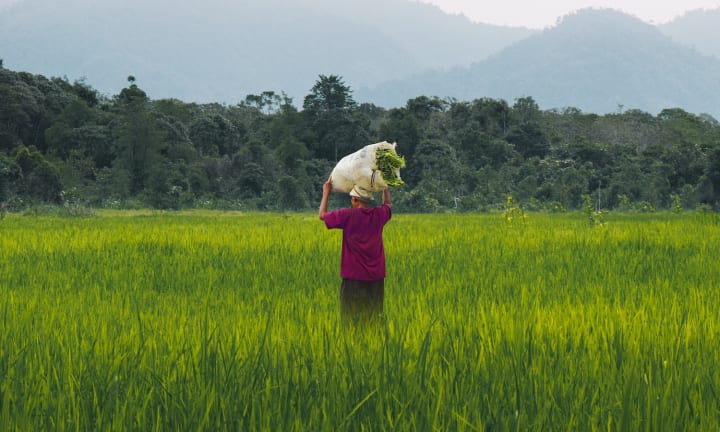Empowering Women Farmers and Restoring Land
WFP's Resilience Program in Niger

Introduction:
In the remote village of Satara, located in Niger's Tillaberi region, the scorching heat is an everyday challenge. However, for Foureyratou Saidou, a single mother of four, the intense temperatures haven't deterred her from tending to a community garden. Saidou is just one of the thousands of farmers benefitting from the World Food Programme's (WFP) integrated resilience program, which was launched nearly a decade ago in Niger and other Sahel countries. This program aims to address various interconnected challenges, including climate change, land degradation, soaring prices, and conflict. Through their efforts, the WFP is empowering women farmers and transforming once-barren land into productive gardens, providing hope and sustainable livelihoods to communities across the region.
Empowering Women Farmers:

Women farmers, like Foureyratou Saidou, play a crucial role in the WFP's resilience program. By supporting the Niger government's priorities and partnering with UN agencies and non-governmental organizations, the WFP initiative covers areas such as land rehabilitation, livelihood diversification, school meals, nutrition interventions, and improved agricultural production and market access. The program not only addresses immediate food security concerns but also focuses on long-term empowerment and resilience-building. By involving women in decision-making processes and providing them with the necessary tools and resources, the program fosters their participation and empowerment in agriculture and community development.
Transforming Barren Land:

Central to the success of the WFP's resilience program is the restoration of natural resources and the improvement of land productivity. By employing innovative techniques such as digging half-moon-shaped structures that slow and capture rainwater flow, the program enhances plant growth and improves agricultural practices. Since its inception in 2014, over 233,000 hectares of land have been rehabilitated, creating opportunities for increased farm revenues, reduced migration and conflicts over scarce resources, and improved education and nutrition. The transformation of once-barren land, as seen in Satara, showcases the potential for communities to rely on resilient food systems that start with productive land.
Mitigating Food Insecurity:
As acute food insecurity in the Sahel region reaches a ten-year high, the WFP's resilience activities in Niger are crucial in mitigating the looming crisis. The program aims to assist 3 million people across the Sahel, with 1.8 million beneficiaries in 2,000 villages in Niger alone. By providing the necessary tools and resources, the program helps vulnerable populations better prepare for and recover from the interconnected shocks they face. The WFP's integrated approach not only addresses immediate food needs but also focuses on implementing sustainable and transformative solutions. Collaborative efforts between the WFP, the government, and partners are key to empowering communities and ensuring their long-term food security.
Community Impact and Role Models:

The positive impact of the WFP's resilience program extends beyond individual farmers. By fostering cooperative initiatives and better linking farmers to markets, the program expands profits and overall food access. In Satara, farmers like Foureyratou Saidou are now members of a village market cooperative, selling their garden surplus and reinvesting profits to improve land productivity. The program's success also relies on community role models who inspire and educate others. Women like Alia Issaka, a single mother of eight in southeastern Niger's Gaffati village, are enrolled in community-based nutrition programs and actively involved in teaching others about healthy cooking and family well-being. These women are leading the way in improving decision-making processes and driving positive change in their communities.
Conclusion:
The World Food Programme's integrated resilience program in Niger demonstrates the transformative power of empowering women farmers and restoring land. By addressing the interconnected challenges of climate change, land degradation, and food insecurity, the program provides hope and sustainable livelihoods to communities in the Sahel region. Through their innovative approaches and collaborative efforts, the WFP and its partners are creating long-lasting impacts, empowering vulnerable populations, and building resilience in the face of adversity. As we commemorate the World Day to Combat Desertification and Drought, the success stories from Niger inspire us to continue working towards a more sustainable and food-secure future for all.
About the Creator
Muazzam shahzad
I am a prolific writer and passionate blogger, consistently delivering compelling content that captivates readers and resonates with a wide audience.






Comments
There are no comments for this story
Be the first to respond and start the conversation.